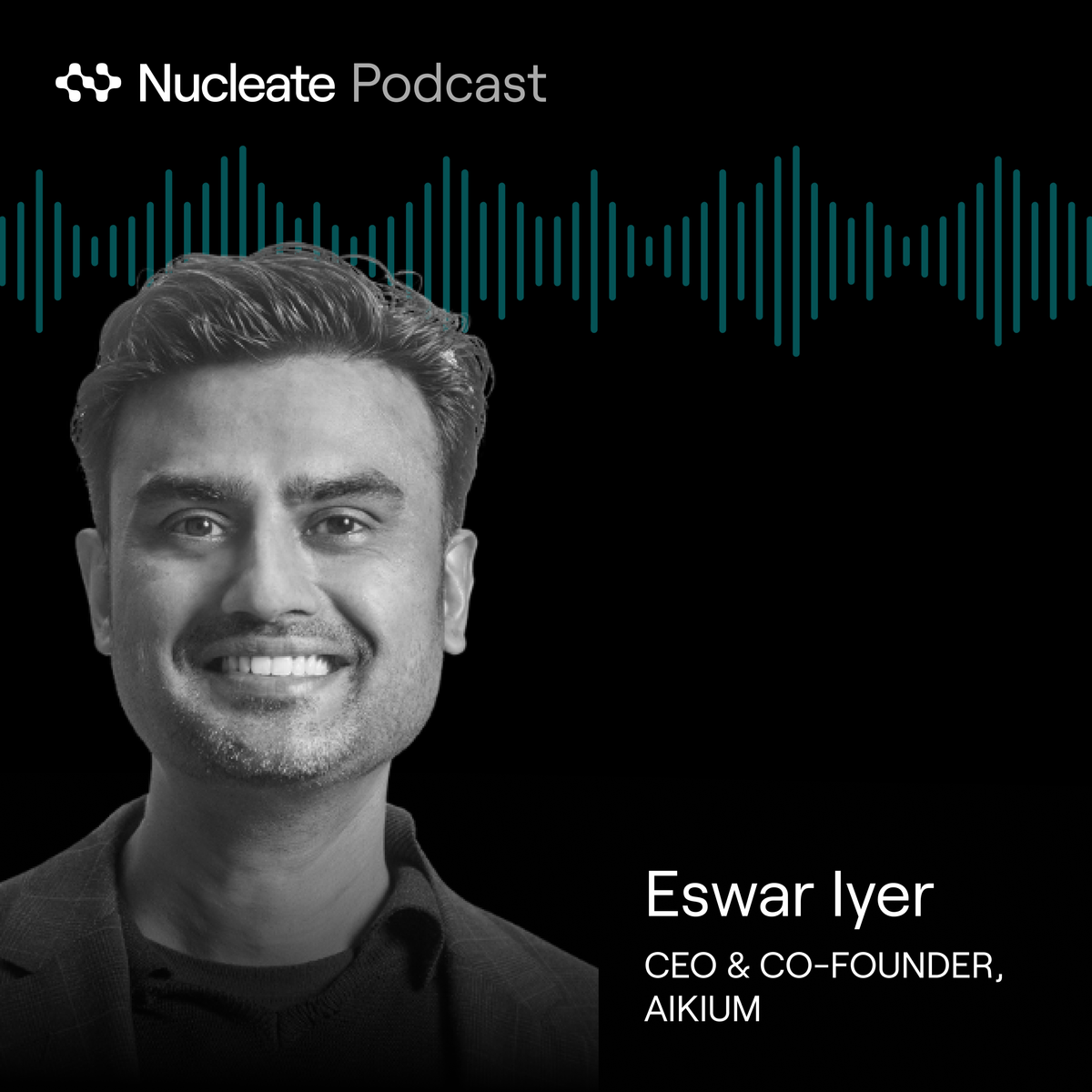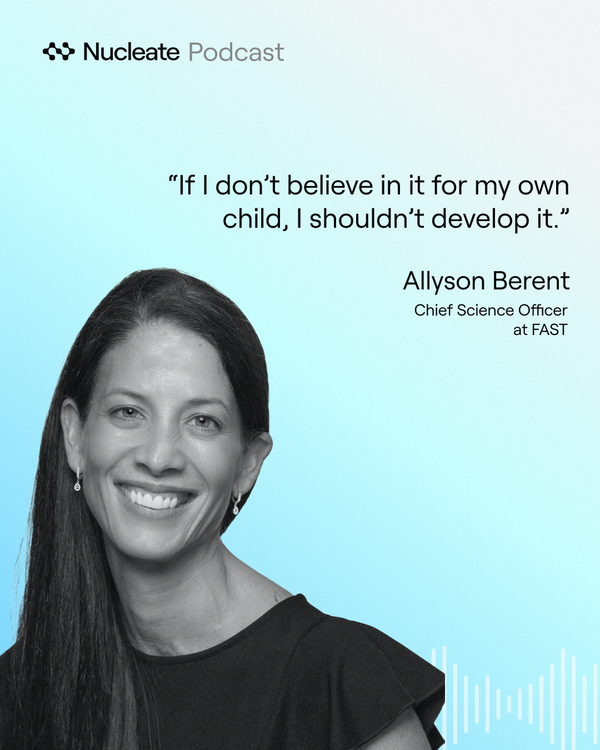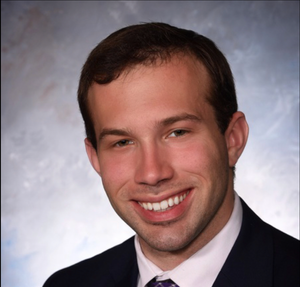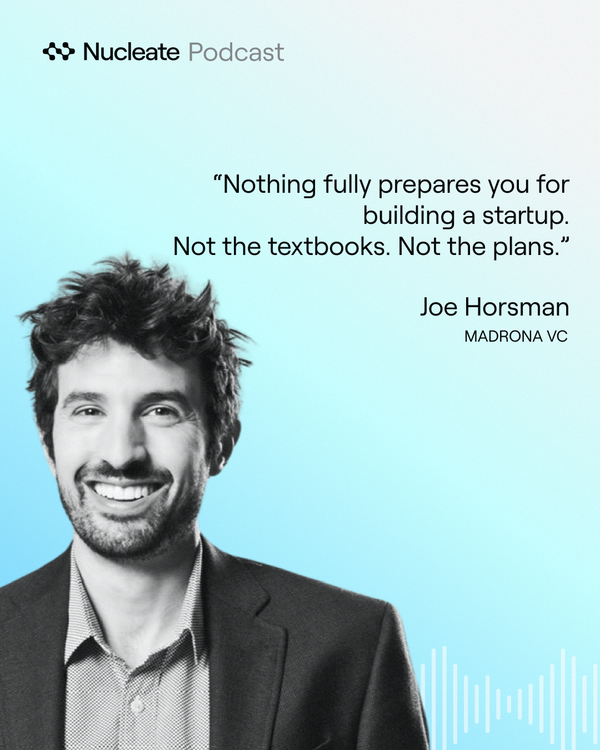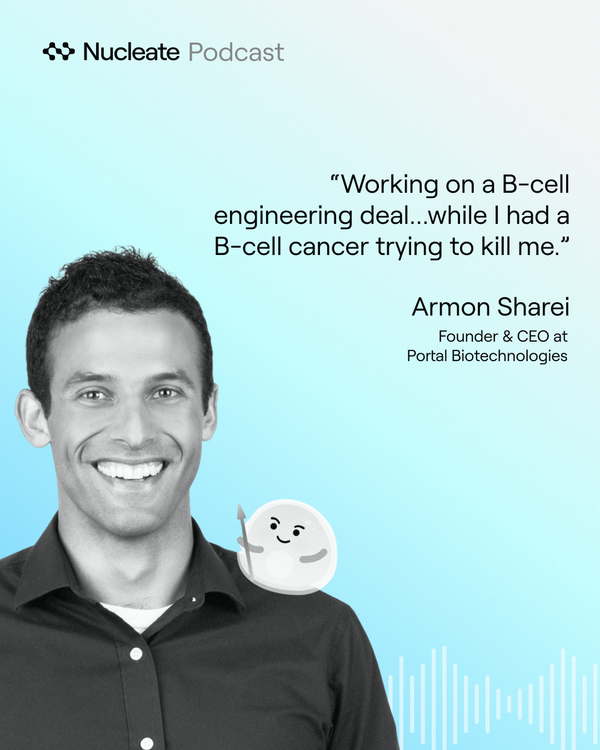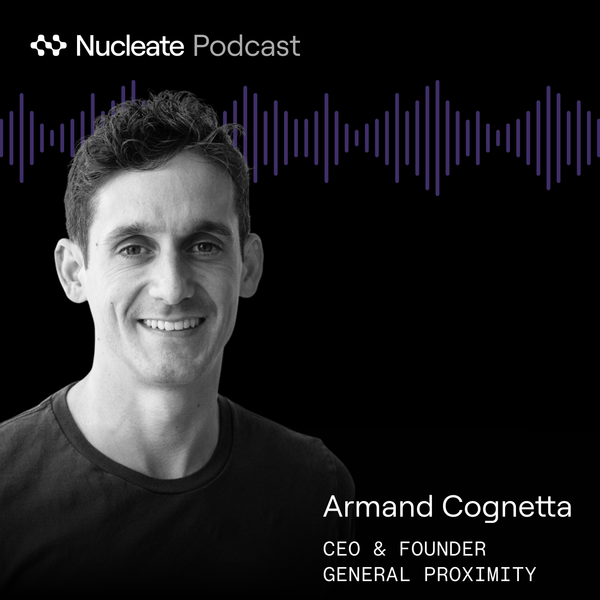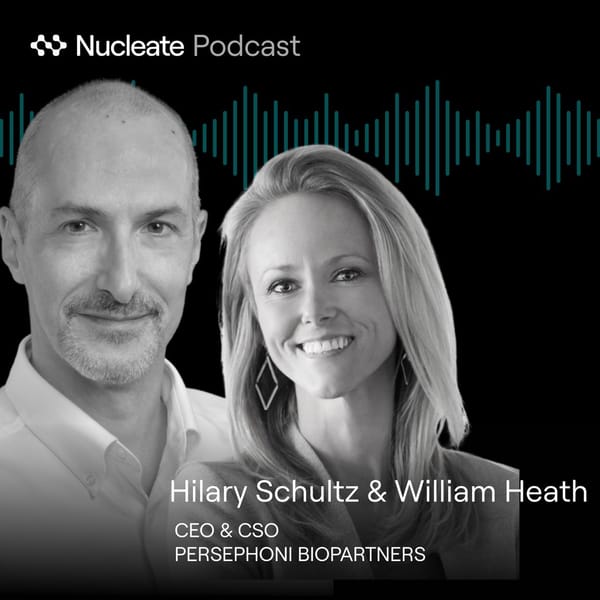| Host |
Anastasia Janas
|
| Listen | Apple Podcasts Spotify |
| Watch | YouTube |
Summary
Drug discovery has historically relied on structure: defined pockets, predictable folds, clear targets. But much of biology defies these rules. Intrinsically disordered proteins (IDPs) — regions without stable structure — play central roles in cancer, inflammation, and neurodegeneration. Yet they have remained largely “undruggable,” resistant to small molecules and biologics alike. At Aikium, based at Bakar Labs, a new solution is taking shape: programmable, sequence-specific binders engineered to engage the disordered proteome directly.
In the latest episode of the Nucleate Podcast, Aikium’s co-founder and CEO Eswar Iyer joins host Anastasia Janas to explore not only the science — but also the personal and entrepreneurial journey behind building at the edge of what biology allows.
The only way out is through. You can't have backups; you just have to get through it. – Eswar Iyer
A New Approach: Engineering SeqRs for Disordered Targets
Rather than forcing structure onto flexible targets, Aikium designed an entirely new binder class: SeqRs (Sequence Recognizing proteins). Built using generative AI—including proprietary large language models (LLMs) treating amino acid sequences as biological “text”—SeqRs are optimized to bind based on linear sequence recognition, not folded conformation. To validate these designs, Aikium scaled mRNA display technology into Yotta Display, an industrialized platform capable of synthesizing and screening over one trillion proteins , exponentially outpacing conventional protein engineering efforts.
Target applications include:
🟢 Chemokine receptors (GPCRs) involved in cancer and immune diseases
🟢 Neuroinflammation and autoimmune indications driven by disordered signaling molecules
🟢 Selective modulation of protein function, avoiding total knockdown strategies like RNA therapeutics
Beyond Technology: Founding at the Frontier
But this story isn’t only about a technical breakthrough. In the episode, Eswar reflects on the emotional reality of founding a platform company in uncharted territory:
🟢 Believing in an idea long before the data exists
🟢 Navigating imposter syndrome, doubt, and experimental failure
🟢 Building conviction not from early external validation, but from internal obsession with the problem
Eswar’s journey — from an endlessly curious childhood (with experiments that often went wrong) to earning 100+ patents and working alongside innovators like George Church — shaped the resilience needed to build Aikium.
Aikium’s work reminds us that real innovation often happens outside clean lines and expected folds — in the chaotic, shifting spaces where new rules need to be written.


